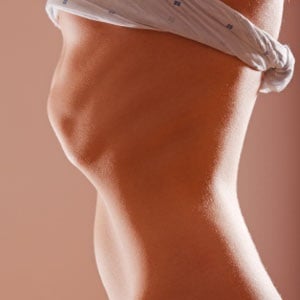
Women with a history of eating disorders were at higher risk of a range of pregnancy-related complications, a new study from Finland found.
However, most of those women did not encounter problems during pregnancy or childbirth. "We recommend closer monitoring of women with a history of eating disorders during pregnancy," Dr Milla Linna told Reuters Health in an email.
She said women who have either a current or past eating disorder should let the maternity clinic know about it. But another researcher pointed out that many women have trouble being open about such issues. Linna, from the Hjelt Institute at the University of Helsinki in Finland, led the study that was published in the American Journal of Obstetrics and Gynaecology.
Adverse pregnancy and birth outcomes
According to the Cleveland Clinic, it's estimated that 1 to 2 percent of women in the United States suffer from anorexia nervosa and another 2 % or so have bulimia nervosa at some time in their lives. "Eating disorders affect women often during their fertile years and behaviours typical of eating disorders interfere heavily with the metabolic and hormonal balance of the body, which may influence the course of pregnancy and childbirth," Linna said.
"We wanted to see whether women with a history of being treated for an eating disorder were at risk of adverse pregnancy and birth outcomes." For the new study, Linna and colleagues examined the medical records of 2 257 women who were treated at the eating disorders clinic at Helsinki University Central Hospital from 1995 to 2010.
Specifically, they looked for any pregnancies from the time of their treatment onward, and any complications that may have occurred around birth. They found that through 2010, women with anorexia nervosa gave birth to 302 babies, women with bulimia nervosa had 724 babies and women with binge eating disorder gave birth to 52 babies.
The researchers compared data from those women to the medical records of 3 642 Finnish women who were not diagnosed with eating disorders. They gave birth to 6,319 babies during the study period.
The Apgar score
Most of the pregnancy complications occurred at similar frequencies across all groups, but there were a few exceptions. For example, women with anorexia nervosa had greater odds of developing anaemia, and they also were more likely to have low birth weight babies and very premature births.
Women with bulimia nervosa were more likely to have babies who required resuscitation or had a low Apgar score.
The Apgar score is a simple assessment of how babies are doing right after birth. The women with binge eating disorder had greater odds of having high blood pressure during their pregnancies, and having babies that were born large.
The researchers also found that women with anorexia nervosa and women with binge eating disorder had greater odds of foetal and infant death.
Dr Nadia Micali told Reuters Health the new study adds more information on a topic that doesn't have much published research. Micali, from the University College London Institute of Child Health in the UK, was not involved with the study but has researched issues of eating disorders and pregnancy.
Lower birth weight
She said the evidence is strong enough to say that anorexia in mothers is linked to a lower birth weight for babies. "Part of the reason is because the moms have lower weight themselves," Micali told Reuters Health. "And that is obviously something that is very preventable," she said, "so it is important for all healthcare professionals – and women – to know that if they get pregnant at a normal weight, the baby is much less at risk." Micali also said most people seem to think women with eating disorders can't get pregnant – but that notion is obviously wrong. "We published a study a few months ago that suggests that about 8%of women who are having their first ultrasound scan had probable eating disorders," she said.
Micali said knowing whether a woman has or once had an eating disorder is not just important for the mother but also the baby. But, she added that women with a history of eating disorders may not want to admit it – even to their doctors.
Read: Eating disorders up depression in pregnancy
"I know from my clinical experience and my research experience that women with eating disorders might find it hard to actually say to healthcare professionals that they have, or that they have had, an eating disorder because they might feel stigmatized, so it's very important for us healthcare professionals to be aware that we can help women be open about it," she said.
Linna said friends and family members can help by focusing on supporting the overall well-being of the woman. "It is good to know that most women do fine during pregnancy and childbirth even when they have had an eating disorder," she said. "However, if the pregnant woman starts to exhibit eating disorder symptoms, depressed mood, anxiousness or highly critical thoughts related to her changing body or gestational weight gain, it is crucial to seek professional help."
Read more:
Eating disorders affect fertility
Men with eating disorders underdiagnosed
Smart family, eating disorder risk




 Publications
Publications
 Partners
Partners














